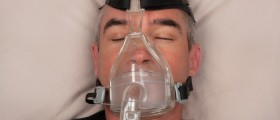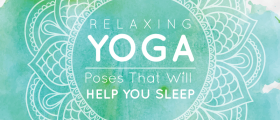
Insomnia means inability to fall asleep or to have a good night's sleep. People suffering from insomnia wake up during the night, experience restless sleep, wake up too early and feel exhausted after sleeping. Sleep disorders that are not caused by any health problems are called primary insomnia whereas some underlying health conditions such as cancers, depression or other can cause sleeplessness called secondary insomnia. Certain medications, alcohol or drug abuse are also causes of secondary insomnia.
A person can have insomnia problems occasionally when he or she is not able to sleep well for a couple of nights and then sleeps well. This is short-term or acute insomnia which can last a few nights or one night a week. Long-term insomnia or chronic insomnia is a sleep disorder recurring frequently, usually three or four nights a week for more than a month and more.
Everyday problems, constant tensions and stressful situations are conducive to insomnia. Insomnia can also be attributable to mental and psychological disorders, emotional distress and illness. Unpredictable life events (deaths of loved ones, divorce, unemployment, fatal diseases) can accumulate stress and manifest in insomnia. Environmental influences, allergens, pollutants, noise, too much light and uncomfortable bad or room temperature affect people's sleep. Changing shifts at work and traveling, thus jet leg syndrome, disturbed sleeping and cause a lot discomforts.
On the other hand, medications used for treating depression or anxiety disorders and depression itself, mental disorders (manias, phobias,schizophrenia), constant stress are all related to chronic insomnia. If a person feels pains they cannot sleep properly.
Everyone should consider cutting down on cigarettes and restricting the use of alcohol, especially before going to bed. Sleep is also disrupted by too much caffeine. Limiting the intake of coffee, tea, soda and chocolate might be helpful.
If this sleep disorder lasts for only two or three nights it is not a serious problem. Occasional or so-called intermittent insomnia has a slight impact on people, but the most negative effects are that of chronic insomnia lasting for a month and more. A good sleep should last eight hours which is enough for people to restore their energy and revive the organism. Repeated lack of sleep has a tremendous impact on our behavior and productivity. A person becomes apprehensive, bad-tempered, hypersensitive and tense, often unable to focus due to tiredness.
Symptoms of insomnia include difficulties in falling asleep, waking up at night when it is hard to fall asleep again, waking up early feeling tired. Transient and intermittent insomnia disappear when anything inducing it is removed.
In the case of chronic insomnia, a person may turn to a doctor. First of all in order to treat insomnia in the best way doctors focus on finding the underlying health condition that causes it. On the basis of the identified causes, a doctor prescribes sleeping pills that are not to be used for a long time. Relaxation therapies to relieve tensions and stress may also be included. There are so-called reconditioning and restriction programs. The first aims at associating bed only with sleep so one is allowed to go to bed only when sleepy. The second limits the time of sleeping hours at night and gradually increases it until the desired effect is achieved.

















Your thoughts on this
Loading...